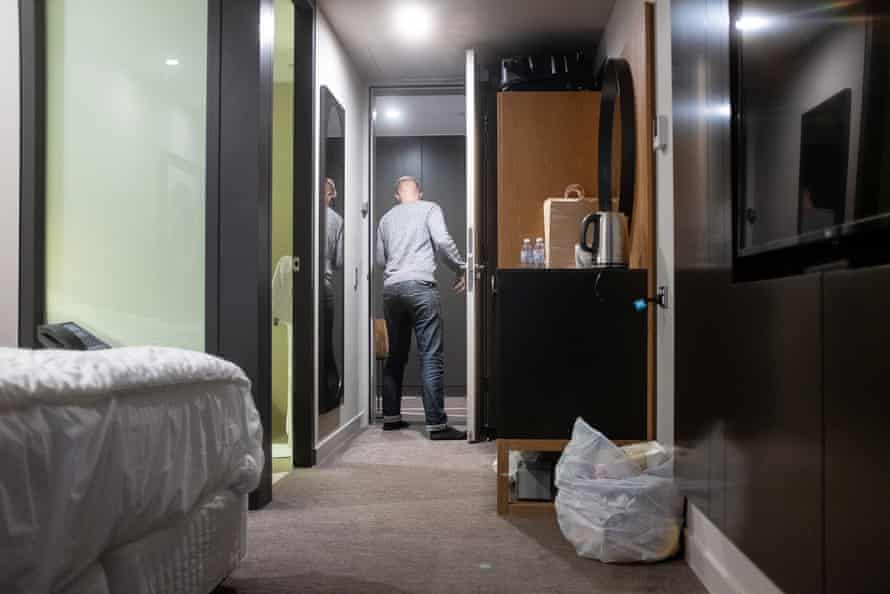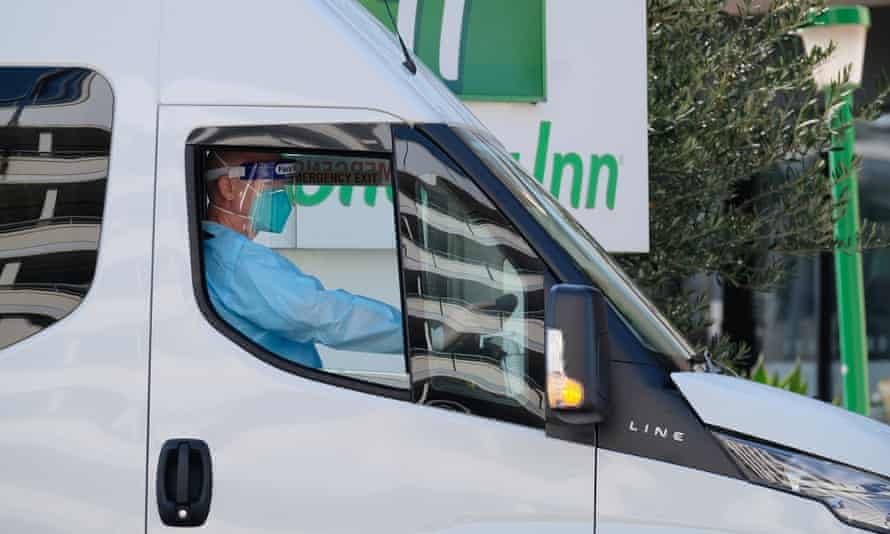Australia’s strict 14-day hotel quarantine system, and simultaneous stifling of its citizens’ ability to travel freely overseas, are widely acknowledged as a major factor in the nation’s successful containment of Covid-19, low death rate and ability to resume a semblance of pre-pandemic life.
However the nation’s quarantine regime has been progressively tightened in response to instances of the virus leaking out of hotels since the mandatory order was introduced for international arrivals from all countries in March last year.
After the country’s initial lockdown largely suppressed the virus and new community cases dwindled, instances of new hotel quarantine breaches were noticeable, and often had the full attention of local health authorities.
Importantly, Australia’s hotel quarantine program is also supported by a politically unpopular cap on weekly quarantine spots that has left tens of thousands of Australians stranded overseas.
While the specifics differ slightly between various states and territories, Australia’s current hotel quarantine program has been shaped by breaches, and the key infection control lessons authorities have learned.
Beware of aerosol transmission
Australia’s first and only major second wave of coronavirus occurred in Melbourne in the second half of year, with a review into the state’s hotel quarantine program finding 90% of the the fatal outbreak’s cases were genomically linked to a single family that returned to Australia and quarantined in a hotel.
Banning outdoor exercise, limiting movement to hotel rooms only, and ensuring some staff wear personal protective equipment while on shift have been permanent fixtures of the program, which was hastily formed around preventing transmission from droplets and surfaces.
However recent infections of hotel quarantine staff, including cleaners and security guards, at hotels in Melbourne, Brisbane, Adelaide and Perth, have highlighted the risk of the virus spreading via air particles – especially in the weeks since travellers have entered Australia with more infectious strains of the virus.
Authorities in Victoria implemented buffer zones around rooms where families are staying, after a returned traveller became infected from what authorities believed was a viral load so high emanating from an infected family across the hall that it jumped across the corridor.
Improve ventilation and airflow
Infection control experts in Australia continue to raise concerns about the virus remaining in stagnant air in corridors.
While there is a push for security to spend less time in hotel corridors – after a worker in Adelaide contracted the virus despite CCTV proving he had remained in place and not breached protocol – some experts now believe hotels, which lack ventilation in and between rooms, are not suitable for quarantine.
Pick the right type of accommodation
Many point to the Howard Springs complex near Darwin in the Northern Territory – a disused mining camp with outdoor cabins for rooms that now processes returning Australians – as a well-ventilated model to minimise transmission while in quarantine. Victoria’s premier Daniel Andrews has recently indicated he wants to move away from using hotels and establish a standalone camp-style facility to quarantine international arrivals.
Meal delivery times – where food is placed at the foot of the door and collected by hotel guests once staff have cleared – are now staggered in some jurisdictions to avoid doors to different rooms being opened at the same time.

Quarantine length and testing is vital
Unlike the UK’s 10-day quarantine program, Australia has enforced a 14-day quarantine since its program’s inception.
The 14-day length is at the recommendation of public health experts who believe this allows for two incubation cycles of the virus.
Guests are tested on day 2 and 12 of their quarantine. Early on, most jurisdictions moved to a system where guests who tested positive were transferred to separate hotels just for Covid-positive returned travellers.
However the emergence of more infectious strains has tightened some settings.
After a returned traveller in New Zealand – which has a similar hotel quarantine system – tested positive two days after finishing her stay, the Australian state of New South Wales introduced so-called day 16 testing, where health officials call everyone who leaves hotel quarantine, ask if they’re exhibiting symptoms, and encourage them to get tested.
After a day 16 test detected a case in NSW this month, state and territory health authorities will now discuss making the extra test mandatory nationwide.
Australia has also introduced the need for anyone travelling to Australia to take a PCR test up to 72 hours before boarding their flight, with proof that a passenger is Covid-negative a requirement to board their flight.
Arrivals from New Zealand no longer have to quarantine when entering Australia, however the one-way travel bubble has been temporarily suspended on several occasions following recent cases in Auckland.
Labour-hire and casual workforces cause problems
Rules governing hotel quarantine staff have evolved substantially in recent months across Australia.
Testing of workers has been progressively ramped up, with measures taken in Victoria to address new strains of the virus now meaning staff are tested daily, including on days when they are not working.
While Australian defence force personnel and police are on site at most quarantine hotels, the use of untrained, private labour-hire contractors – as opposed to state-employed security, health and cleaning staff – have caused health authorities headaches, as some casual health workers did shifts between quarantine hotels and aged care facilities.
Some states have banned any hotel quarantine staff from working second jobs, including in other quarantine hotels.
Transport is a prime source of infection
An inquiry into Victoria’s hotel quarantine system recommended that infection prevention controls should also be applied when transporting returned passengers from airports to quarantine hotels.
Drivers are made to wear PPE, and buses used for hotel quarantine are set aside from vehicle fleets deployed on services for the general public.
In NSW, after a van driver who transported a family of returned travellers contracted Covid-19 in December, testing of transport workers was increased to daily saliva testing, and weekly throat and nasal swabs.

Capping returns eases the load, but comes at a cost
Perhaps the most controversial aspect of Australia’s hotel quarantine system was the decision to cap the number of people brought into the country, to levels that have fluctuated between 4,000-6,500 per week, to ease pressure on state health authorities managing quarantine hotels.
Unlike New Zealand, where travellers book a spot in managed isolation before their flight ticket, passenger limits are granted to airlines for each flight. Some carriers have admitted to prioritising more expensive air tickets to remain commercially viable in light of limits of as few as 25 passengers per flight.
As a result, Australians have struggled to return home, with roughly 40,000 registering with the government as being stranded, and the cost of the available tickets soaring.
The cap was introduced in July last year, following the initial influx of expats and travelling Australians returning home, and quarantine fees being introduced.
Since March, Australians have also been barred from leaving the country, and foreigners banned from entering the country, without a pre-approved exemption.
This content first appear on the guardian
